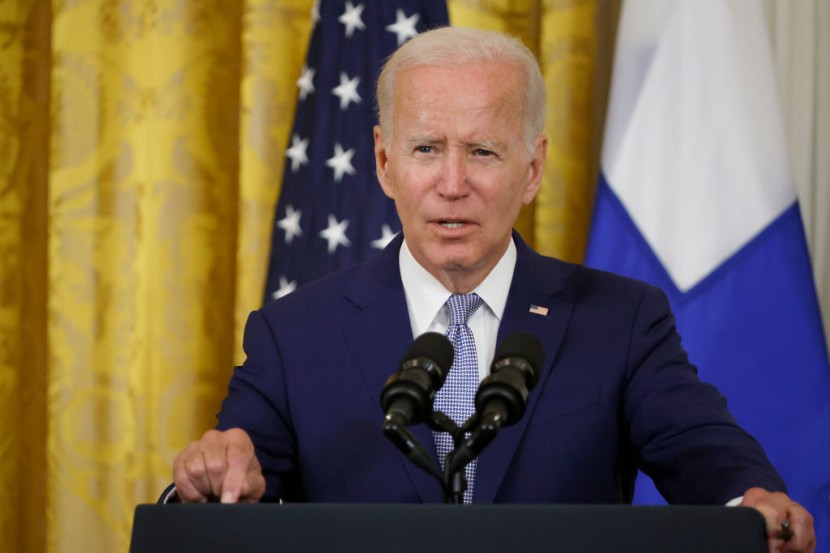
On the same day that six Republican-led states filed a lawsuit against President Joe Biden to prevent the implementation of his student loan forgiveness scheme, the Biden administration reduced the eligibility for its program on student loan forgiveness.
Borrowers with federal student loans held by private lenders but guaranteed by the government will no longer be eligible for debt relief. According to an administration office, the adjustment will have an impact on almost 770,000 people.
Biden's Student Loan Forgiveness Plan Has Issues
As long as the borrower consolidated their debt into the federal direct loan program, the Department of Education initially stated that this loans-many of which were made under the former Federal Family Education Loan program and Federal Perkins Loan program would be eligible for the one-time forgiveness action.
The department changed its strategy on Thursday. Its website states that to qualify for the debt relief, privately held federal student loans had to be consolidated by September 29. Although the Department of Education said it is investigating if there are alternate paths to assist, borrowers with privately held federal student loans who have not yet consolidated are currently out of luck.
Of the 43 million people who have borrowed federal student loans, just a small number have privately held them. Federal Family Education Loan borrowers number around 4 million, but not all of them are likely qualified for the student loan forgiveness program, which also has income criteria, as per CNN.
Individual borrowers who made less than $125,000 in 2020 or 2021 and married couples or heads of households who made less than $250,000 will have up to $10,000 of their federal student loan debt canceled under President Biden's proposal.
A borrower is qualified for up to $20,000 in debt forgiveness if they also obtained a federal Pell grant while attending college. Each year, Pell grants are given to millions of low-income students depending on the size, income, and cost of their families and college.
These borrowers are also more prone to experience difficulties making their student loan payments and going into default. In October, the administration is anticipated to start offering student loan forgiveness.
After coming under increasing pressure from Democrats to cancel some student loan debt, President Joe Biden revealed the forgiveness plan in August. Senators Elizabeth Warren of Massachusetts and Chuck Schumer of the Senate made repeated requests to the President to forgive up to $50,000 in student loan debt for each borrower, according to CBS News.
However, the cancellation of federal student loan debt in such a broad sense is unprecedented and has not yet been put to the test in court. Instead of delving into a complicated legal issue, Biden initially encouraged Congress to take action to erase some student debt.
The Biden administration argued in a Department of Education memo published in August that the Higher Education Relief Opportunities for Students Act of 2003, also known as the Heroes Act, gives the Education Secretary the authority to forgive student loans in order to help address the financial harm brought on by the COVID-19 pandemic.
Read Also: Former New York Gov. Andrew Cuomo Plans To Return to Public Life Following Remorseless Sex Scandal
What's Next For Biden's Student Loan Handout?
Republicans in Congress and conservative advocacy organizations have disputed that assertion, arguing that Biden's action amounts to illegal executive overreach because the 2003 law was designed to give the president power in the wake of a catastrophe like the terrorist attacks of September 11, 2001.
Instead, Republicans like Sen. Ted Cruz have stated that finding someone who can provide "standing" before the court, or the grounds to sue, is their largest hurdle in successfully reversing the program. Karine Jean-Pierre, the press secretary for the White House, refuted that assertion on Tuesday by telling reporters that anyone who does not want to seek debt relief can opt-out.
A different strategy is used in the lawsuit brought by the states, who contend that the cancellation of the debt will harm them in multiple ways. The lawsuit underlines that because borrowers are likely to consolidate their loans under the Federal Family Education Loan program, Missouri's student loan servicer, which is a member of the state government, could experience a decline in revenue.
President Joe Biden's plan to eliminate student loans may face additional legal challenges. Republican Mark Brnovich, Arizona's attorney general, has stated that he is working to create the best legal strategy, Washington Post reported. The Job Creators Network, a conservative advocacy group, is considering its legal options and intends to file a lawsuit as soon as the Department of Education formally announces the student loan forgiveness program later this month.
However, several legal professionals doubt that Biden's student loan forgiveness scheme could withstand a judicial challenge. If the standing obstacle is overcome, the case would then be heard by a district court, which might or might not issue a preliminary injunction to stop the cancellation until a final decision is made on the case's merits.
Recent decisions by the US Supreme Court that dealt with executive power limited the federal government's ability to enact new laws. Lower courts may use the justices' opinions in such cases when determining the Department of Education's authority even though the Supreme Court only hears a small number of cases each year.
Related Article: Joe Biden Speaks to Ron DeSantis After US President Received Backlash for Not Reaching Out to GOP Governor Amid Hurricane Ian Issue
@YouTube
© 2025 HNGN, All rights reserved. Do not reproduce without permission.








